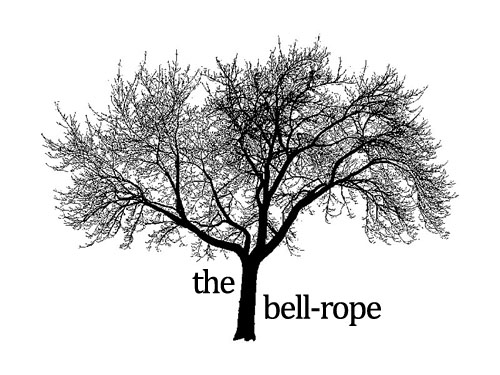I wrote before about a movie drawn from the shambles of a human face. Here is a movie where the tone is set immediately by the city, and the city, in a sense, determines all that follows. In Bruges seems to be marketed as a comedy-action, with Colin Farrell, but it is really neither action nor comedy, unless the comedy you're thinking of is Dante's Divine Comedy.
There is, indeed, something epic about In Bruges - epic not in our common meaning of grand or memorable (see: "That was epic, dude!"), for it is above all a most intimate observation of a few private lives, of men who are invisible to the crowds around them. Rather it is epic in the traditional sense of showing us a complete world, down to the smallest detail. Bruges is "the most perfectly preserved medieval city in Europe," and as one character says, too bad it's in Belgium but then again if it was somewhere good it would be overrun with tourists. I have no idea if the real Bruges is anything like the one in the film, but if it is, then it may be one of the most singularly miraculous places on Earth: a shockingly beautiful and poetic town that manages to stay off the radar, roamed mostly by its own residents across cobbled streets or otherwise the ubiquitous canals that seem to run under the old buildings, suspending them on water.
No wonder no one knows anything about the city, since in the film it is shot as if from an ancient time. In one of their first sightseeing forays, a character remarks to another that this particular church used to be a hospital in the 1100s. Strange to think of a hospital, a place singly focused on keeping people alive, now empty after almost 1000 years of disuse, all those mortal concerns long gone. And so it is with the rest of the film. The movie is about hitmen, but deeply ethical hitmen, and it is fitting for their line of work that absolutely no action is without its appropriate consequence in the movie. No person drawn into the world of the hitmen is incidental; people are drawn into Bruges, or drawn back into Bruges, but none leave, and all their decisions and actions wind back and back in concentric circles. In this sense fate becomes a guarantee; if you kill a man, or hit a Canadian, or insult a dwarf, or flirt with a girl on a movie set, their lives will become intertwined with yours and every consequence you expect to happen will, must happen. Somehow this sense of inevitability and enclosure is palpable in the way the houses line up in Bruges, their flat, triangular faces forming an impenetrable wall. Bruges is a Petri dish for all human karma.
The characters know this, or learn this, and become ever carefuller with their words and gestures. In one of the many remarkable sequences of the movie, a hitman is about to launch himself off of a high tower - but before he does, he sprinkles coins to the ground below, to alert the strangers passing beneath to clear a space for his death. It is a delicate act that betrays such a powerful sense of responsibility, such an overwhelming awareness that things go on, they always go on, that even something as personal (and, in this case, selfless) as suicide can nevertheless begin a progression of hurt and sadness that may have no end. Even though he is about to die, he knows that it is so easy to rend the fabric of other lives, that the world is a small, closed space, where nothing ever goes unanswered. And so he does his best to make the smallest possible splash.
I am trying to describe as much of the film's beauty as possible without "giving away stuff," which I find a terrible line to walk because the two really having nothing to do with one another. I mentioned that every life that becomes involved in the story becomes central - there is no reprieve or escape. Through the movie, the hitmen collect images, friends, enemies, lovers, architecture, impressions, art. In the last scene, as a character is carted off to a hospital in Bruges (yes), all of these people come back, in a sequence that, like the city itself, appears out of a dream. They are ordinary people: a Hollywood actor, a hotelkeep, a drug dealer, a small-time hustler, but in this sequence, surrounded by the lit-up buildings of night-time Bruges, they become archetypal, medieval, fantastical: a dwarf, a one-eyed villian, a beautiful girl, a pregnant Mary. (I had decided to call her "Mary" because of her beauty, her innocence and goodness, her pregnancy, and only this moment realized that her name actually is Marie in the film. Nothing is accidental.)
In voice-over, the wounded hitman says he would rather go to hell than stay in Bruges, and then decides that hell is maybe exactly Bruges. He says this as we see a shot of his totally hot girlfriend, sobbing as she tries to reach him, and we wonder at his comment. Surely he has seen worse in his life, surely Bruges is not so bad. Surely this girl has given him more happiness than he has had in a long time. But Bruges represents a closed world, and a fatal symptom of such a place is that one can never hope to leave. Every thought, every gesture you make resonates with all the air in the world and changes it, so that it is different from before, and you must eventually breathe again that changed air. This is responsibility, and inevitability, and therefore burden. Hell doesn't have to be filled with burning coals or devils with whips to be hell; hell is hell simply because it is a place from which you know you will never escape.



No comments:
Post a Comment